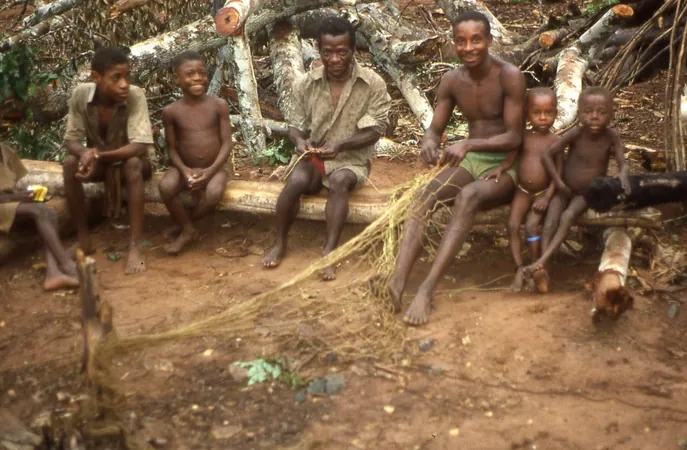
How Hunter-Gatherer Childhood Learning Shapes Human Adaptability and Culture
2024-11-19
Author: Sophie
In a fascinating exploration of childhood learning among hunter-gatherer societies, a recent study reveals that children in the Congo Basin learn survival skills from as young as six or seven—a stark contrast to the typical childhood education experience in the United States.
Led by anthropology professor Barry Hewlett from Washington State University, the research published in the Proceedings of the National Academy of Sciences highlights how the unique communal lifestyle of hunter-gatherers facilitates rapid cultural knowledge acquisition. Unlike modern educational systems that often prioritize formal schooling, these children thrive in environments where learning comes from an expansive social network, not just parental figures.
The study examined nine distinct modes of cultural transmission, revealing that a significant portion of the knowledge acquired by children comes from a variety of sources—relatives and peers alike—indicating a more collective approach to education than previously recognized. Approximately half of the cultural knowledge gained by these children is sourced from individuals outside their immediate family, which diverges from the conventional Western method of learning centered around the nuclear family setting.
Intimate living conditions play a crucial role in this educational process. In small camps housing 25 to 35 individuals, children are surrounded by a diverse group of adults and peers, allowing them to learn essential life skills—whether it be hunting, gathering, cooking, or caring for infants—through observation and non-verbal interactions. This informal network nurtures an atmosphere where learning is organic rather than prescriptive.
Moreover, the study underscores key social principles such as egalitarianism, respect for individual autonomy, and sharing within hunter-gatherer cultures. Children absorb lessons about cooperation, equality, and independence by modeling the behaviors they observe in their community, fostering a comprehensive understanding of their societal norms. They are encouraged to explore their environment freely, which enhances their ability to innovate and integrate knowledge over generations—a phenomenon known as 'cumulative culture.'
Hewlett poignantly notes that unlike many animal species, where social learning is limited to a handful of skills, humans possess intricate mental and social frameworks that enable the transmission of vast arrays of cultural traits. This flexibility has empowered humans to adapt to a wide range of environments, from lush rainforests to parched deserts.
As we continue to navigate the complexities of modern education, these insights from hunter-gatherer societies may offer valuable lessons on fostering resilience, creativity, and community-oriented learning in our own children, making us rethink the traditional paradigms we have long accepted. What if embracing a more communal and observational approach could enhance our education systems today?









 Brasil (PT)
Brasil (PT)
 Canada (EN)
Canada (EN)
 Chile (ES)
Chile (ES)
 España (ES)
España (ES)
 France (FR)
France (FR)
 Hong Kong (EN)
Hong Kong (EN)
 Italia (IT)
Italia (IT)
 日本 (JA)
日本 (JA)
 Magyarország (HU)
Magyarország (HU)
 Norge (NO)
Norge (NO)
 Polska (PL)
Polska (PL)
 Schweiz (DE)
Schweiz (DE)
 Singapore (EN)
Singapore (EN)
 Sverige (SV)
Sverige (SV)
 Suomi (FI)
Suomi (FI)
 Türkiye (TR)
Türkiye (TR)